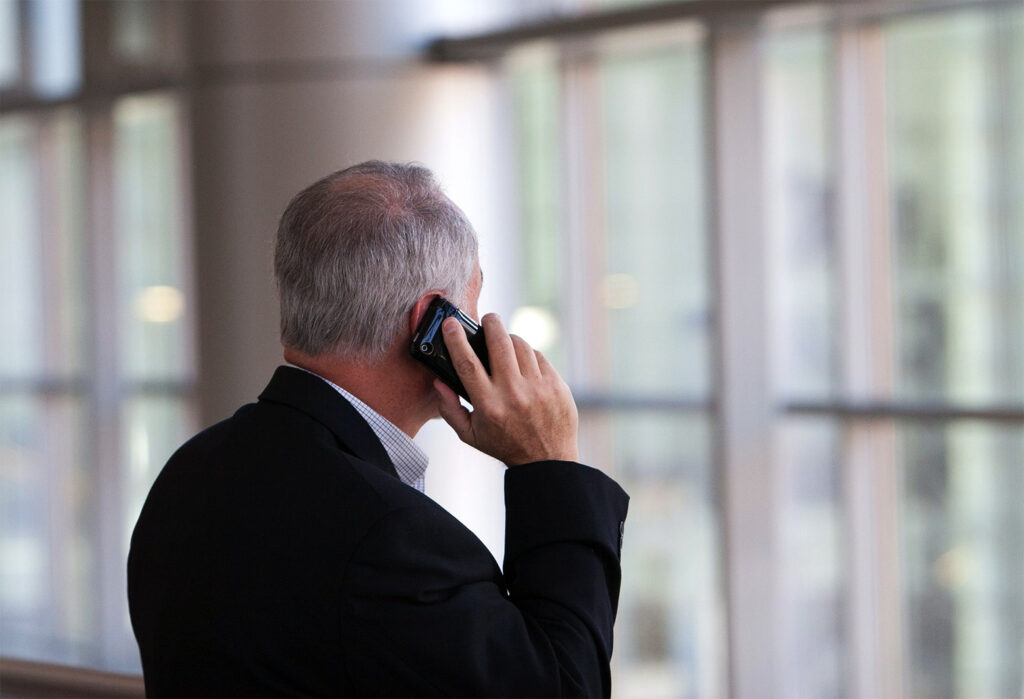Have an upcoming phone interview soon? Here are some tips from our PSG recruiters on how to prepare for a phone interview.
Choose A Quiet Location
Unlike going into the company’s offices for your interview, you get to control your own interview environment. Make sure you choose a location free from distractions and background noise. Ideally, you should be in a quiet room at home where you can eliminate possible distractions such as children and pets. Even then, make sure you don’t have noises in the background such as the TV or music.
Have Notes And Resume At Hand
One of the great things about a phone interview is the ability to have all your talking points and your resume physically laid out in front of you during the interview. It’s very likely that your interviewer will ask you to briefly walk through your career history, so print a hard copy of your resume as an easy reference point.
When you’re nervous, it’s easy to rush through the conversation and miss out on key details. Jot down a few memorable work anecdotes and big accomplishments you want to mention. It’s also a smart idea to prepare 3-4 questions about the role and the company which you can seamlessly bring up at the end of the interview. Also, make a list of the things that are important to the hiring manager that your recruiter has shared with you. That way you make sure they’re covered during the interview.
Dress Professionally
One way to instantly set yourself up for failure is by taking the mindset that the phone interview isn’t as big a deal as a face-to-face interview. Do not do this. Your interviewer deserves the same respect and attention that you would give to any other scheduled appointment. Make sure you’re well rested, showered, and ready to go well before the phone rings. By mentally and physically prepping yourself for the day and putting on professional clothing, you’ll instantly be putting yourself in a more confident and alert mindset during the conversation. Understand the hiring manager would not take the time to interview you if he or she didn’t appreciate your background and experience. Use that knowledge as a confidence builder during your interview.
Remember the main purpose of the phone interview is to get a face-to-face interview, so treat it with importance.
Learn More About The Industry And Company
Research the company’s social media accounts and website to learn more about workplace culture, current projects, and future goals. Search for recent news or announcements on the company on search engines.
Organizations seek to hire creative and productive employees who are passionate about their job and working for a company. You’ll communicate these traits to them by being prepared and researching the company.
Speak Slowly, Breathe, and Show Enthusiasm
While face-to-face conversations allow for nonverbal clues which let you see how the other person is reacting to the things you’re saying, it’s much harder to judge someone’s tone over the phone. Although you may be eager to start listing off your qualifications, never start speaking until the interviewer finishes the question. If you have something you want to say, jot it down on your notepad and mention it when it’s your turn to talk.
Before giving an answer take a calming breath and plan out your entire answer like a story with a clear middle and end. This way you’ll prevent injecting your speech with a bunch of mindless “likes” and “ums” or trailing off into an awkward silence. Remember interviews inherently make people nervous, and when people are nervous they tend to sometimes talk too much.
If you feel you have gone on too long in answering a question, just stop and say, “Does that answer your question?”
Be Sure To Use First Name
People enjoy hearing their own names. Studies have shown medical patients in vegetative state react to the sound of their own name, demonstrating just how powerful this tactic is. Leave a lasting impression by acknowledging each person on the interview by his or her first name.
Ask Questions
Along with slowing your speech, an excellent way to prevent coming off like a motor-mouth is by making sure to ask questions to the interviewer. Remember, an interview isn’t an interrogation. It’s just as important to learn if the potential role is a good fit for your needs as well as meeting the needs of the company.
Instead of saving all your questions and concerns for the end of the call, go with the natural flow of the conversation by asking your interviewer to expand more on certain benefits they mention or even asking them to walk you through a typical work day with this organization.
Find Out What Next Steps Are
Before ending the phone call, ask the interview for follow-up information and what the next steps are in the hiring process are. This information may include a timeline of when and how potential candidates will be notified of additional interviews and contact information to reach out with any additional questions.
Follow Up With A Thank You Note
A follow-up email or note can keep you top of mind with the hiring team. This gesture can reinforce your character as the kind of employee they want on their team. This simple act can help you at any stage of the interviewing process, but it can make an impact if your interview is early in the selection process. Your follow-up email or call can be as early as the day of the interview or the following morning.
If you have questions while looking for your next career opportunity or preparing for a phone interview, please feel free to reach out to us.

